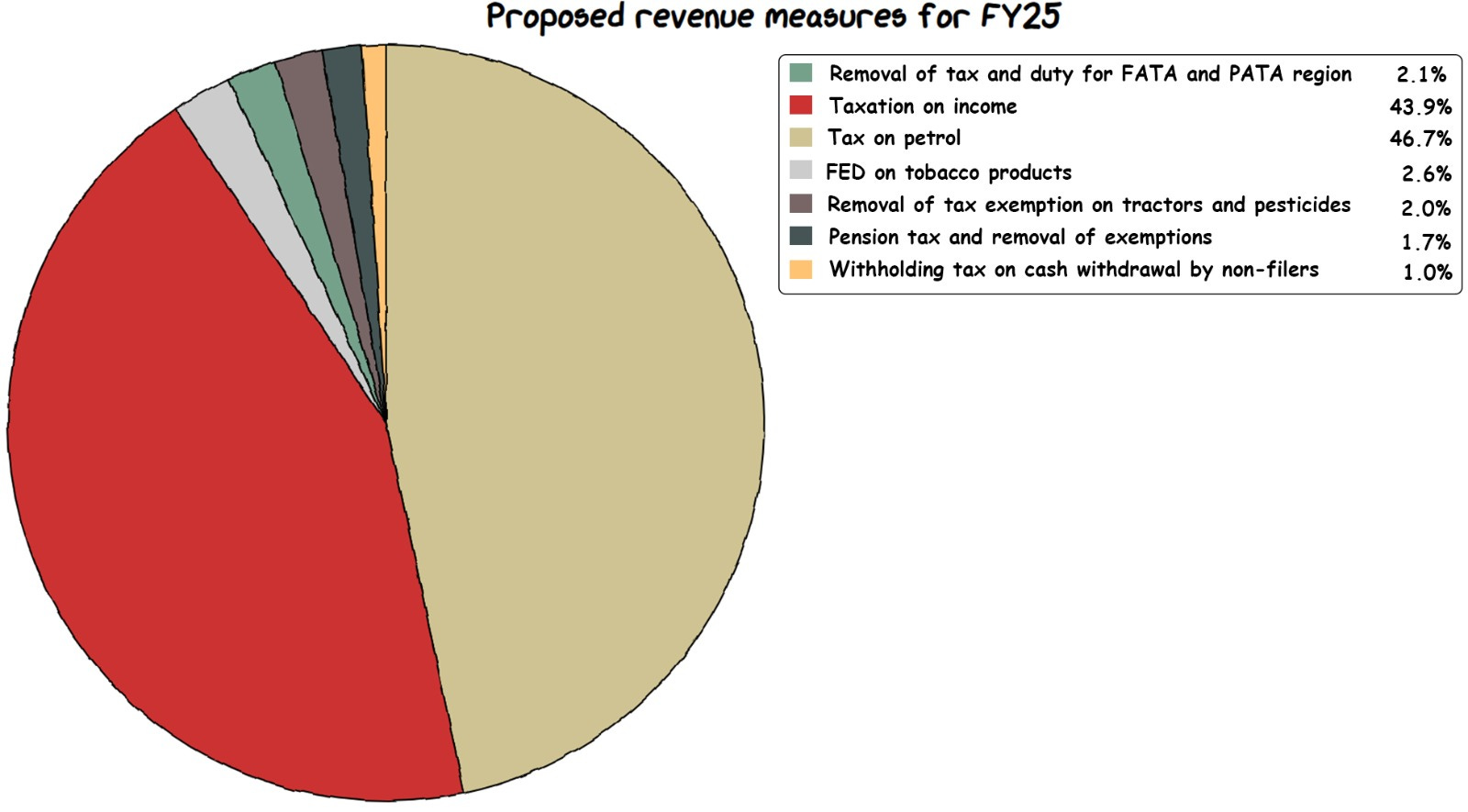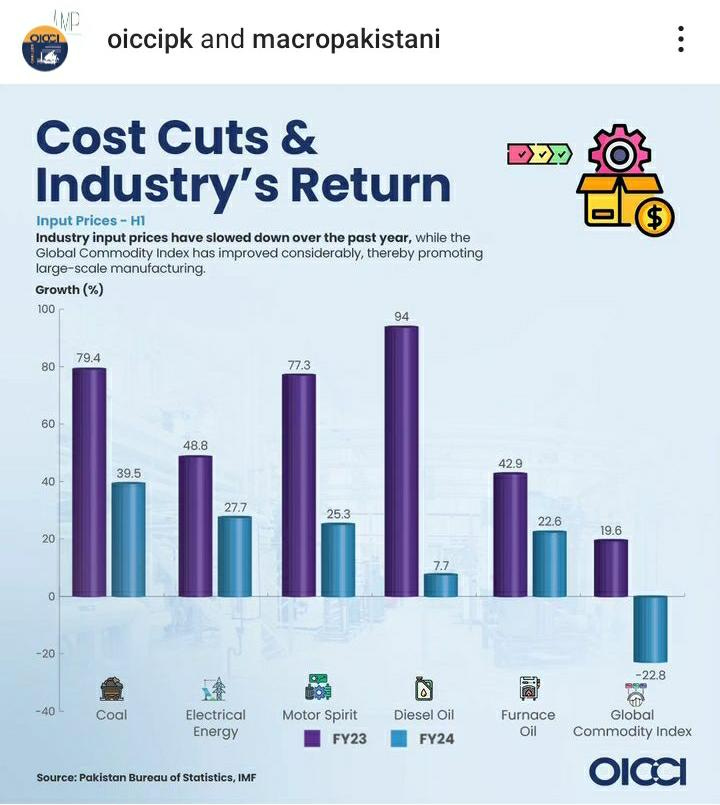Pakistan’s IMF Dependency Syndrome
If Pakistan adheres strictly to the IMF's conditions, it will be required to eliminate 'sales tax exemptions' amounting to at least PKR 1.5 trillion in the upcoming budget in addition to other taxes

The IMF has forecasted a PKR 13 trillion revenue target for Pakistan’s upcoming FY25 budget. Despite official data showing an estimated PKR 9 trillion recovery for FY24, it appears inevitable that the government will likely allocate a higher revenue target for the following year. This move aims to satisfy the IMF's requirements and secure another substantial package. To bridge the gap of at least PKR 2 trillion (in addition to nominal growth), many proposals have been thrown around for the Pakistan government to consider, if it intends to ensure a primary surplus for the next year as well. However, all suggested proposals mostly target the lower-income households of Pakistan.
This isn’t the first time that the common man has to bear the burden of fiscal deficits due to IMF’s suggested policies, but will it be the last?
A 2020 study by the Global Development Policy Center at Boston University found that the IMF has acknowledged austerity measures constrain growth, yet it continues to require these policies from countries receiving its aid. These policies send developing countries into a vicious cycle of never-ending deficits which result in various cuts on social spending thus restraining states from using their resources to provide basic human rights to their citizens. In other words, IMF conditionalities often infringe on countries’ right to use their resources for their citizens. Debt servicing also crowds out essential services like education, health, food, and housing, negatively impacting human rights in debtor nations.
The data below indicate that the current revenue proposals negatively affect lower-income households by reducing their disposable income through taxes on petrol, pensions, income, and cash withdrawals. This makes them worse off, as basic economics predicts. In contrast, wealthier families and businesses remain largely unaffected by these draconian tax extraction measures.
Only time will tell what the FY25 budget has in store for Pakistanis, but, the current trajectory of the IMF plan shows that it will be around for a long time.
GRAPHIC
Over the past 20 days, many Palestinians in the Gaza Strip have been forced to leave Rafah, and it has been a terrible experience. They have had to move several times and thought they would be safe in Rafah. Instead, places declared as 'safe zones' by the Israeli Occupation Forces (IOF) within Rafah have been bombed several times over the past week and the bombing is now the norm from the North to the South of the Gaza Strip.
Public health issues are extremely severe along with aid blockade, and the daily life is horrifying for innocent civilians who are enduring this genocidal military campaign of Israel for the past 8 months almost.
Over the past week we have received a lot of messages about not doing enough to express our solidarity with Palestine. While we are equally upset and at a loss of words for the innocent Palestinian lives being taken through the burtal genocidal acts of Israel, we’d just like to inform that back in October 2023 when we first started posting about Palestine 🇵🇸 in a focused manner on a weekly basis via Macro Pakistani, at times these posts were the only reason for Brand Nib to fill the Macro Pakistani page/group/newslettter with more visuals and keeping it active.
We all are in a state of continuous guilt and helplessness since October 7, 2023. However, it is essential to free our mind from the chains of colonization, for our rage is holy, and our grief is divine.
Guard them well, and wield them for the oppressed.
None among us stands unscathed, for this world is unjust. To feel untroubled is to be numb and devoid of conscience.
Yet, let not despair hold us back. We owe the oppressed our resilience and our unwavering solidarity.
Let us raise our voices, ever louder!
#freepalestine🇵🇸
In case anyone wants to contribute (to the Palestine solidarity campaign on Macro Pakistani) and send data-backed content, please feel free to send an email to fakiha.rizvi@brandnib.com
Team Brand Nib (@brandnib)
Industry input prices have slowed down over the past year, while the Global Commodity Index has improved considerably, thereby promoting large-scale manufacturing.
At the same time, industries’ capacity utilization has declined due to subdued demand and high costs. Additionally, credit to the manufacturing sector has decreased by 39%, and high operational costs make revenue generation challenging. Therefore, creating apprehensions about the future of various industries in Pakistan. At such a time credit support should focus on ensuring export generation to recover demand.
Data Visualization & Marketing Partner: Brand Nib
Visit: https://macropakistani.com/advertise/
Grateful for the ever-growing list of collaborators!
About Us: Macro Pakistani is a data-driven research platform that aims to provide a basic understanding of Pakistan’s economy. If you have an interest in contemporary news but are currently overburdened with sensationalism and specialized vocabulary, we are the platform for you.
How are we doing? Please send us any questions, comments or suggestions by replying to this email.





